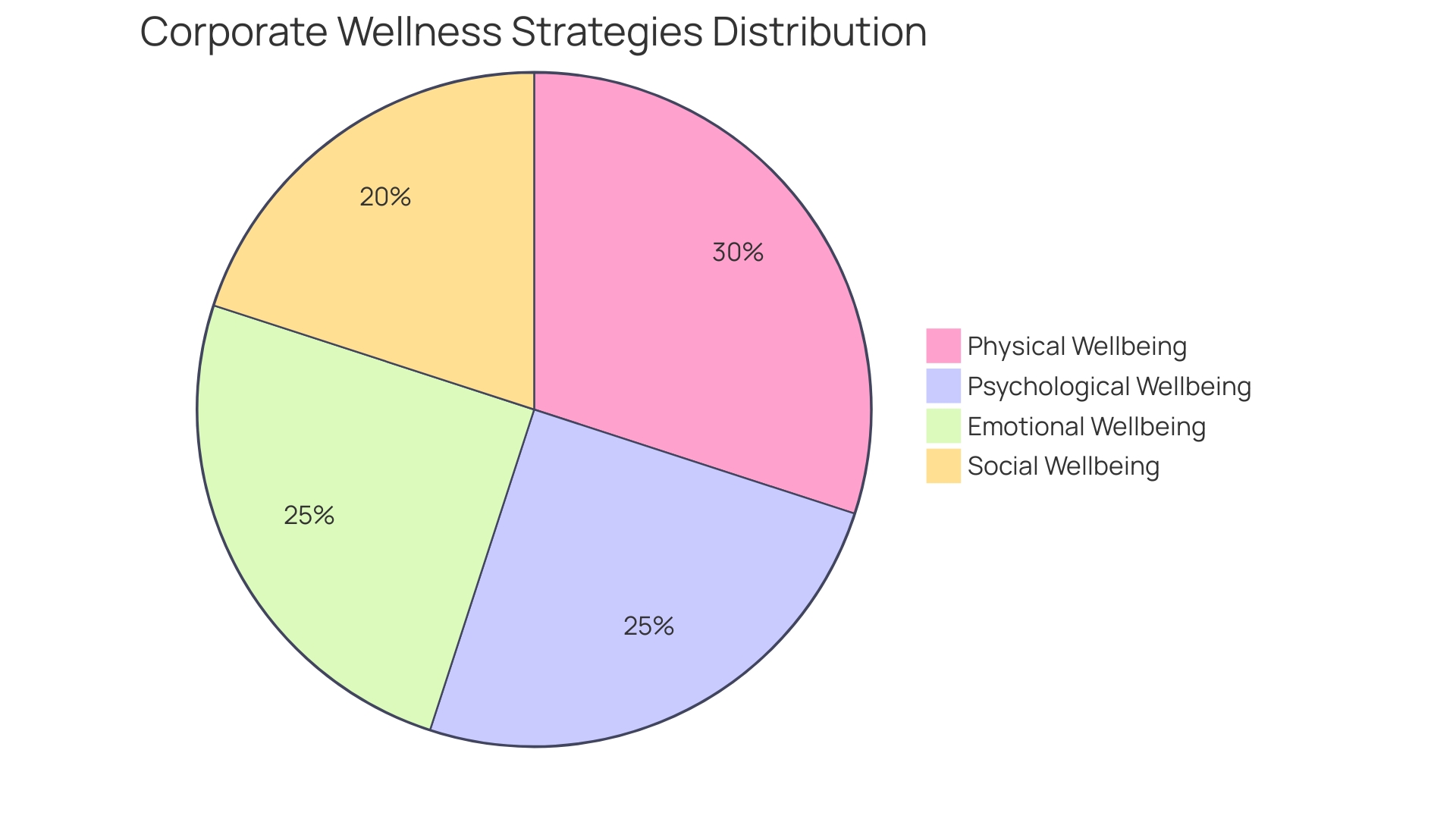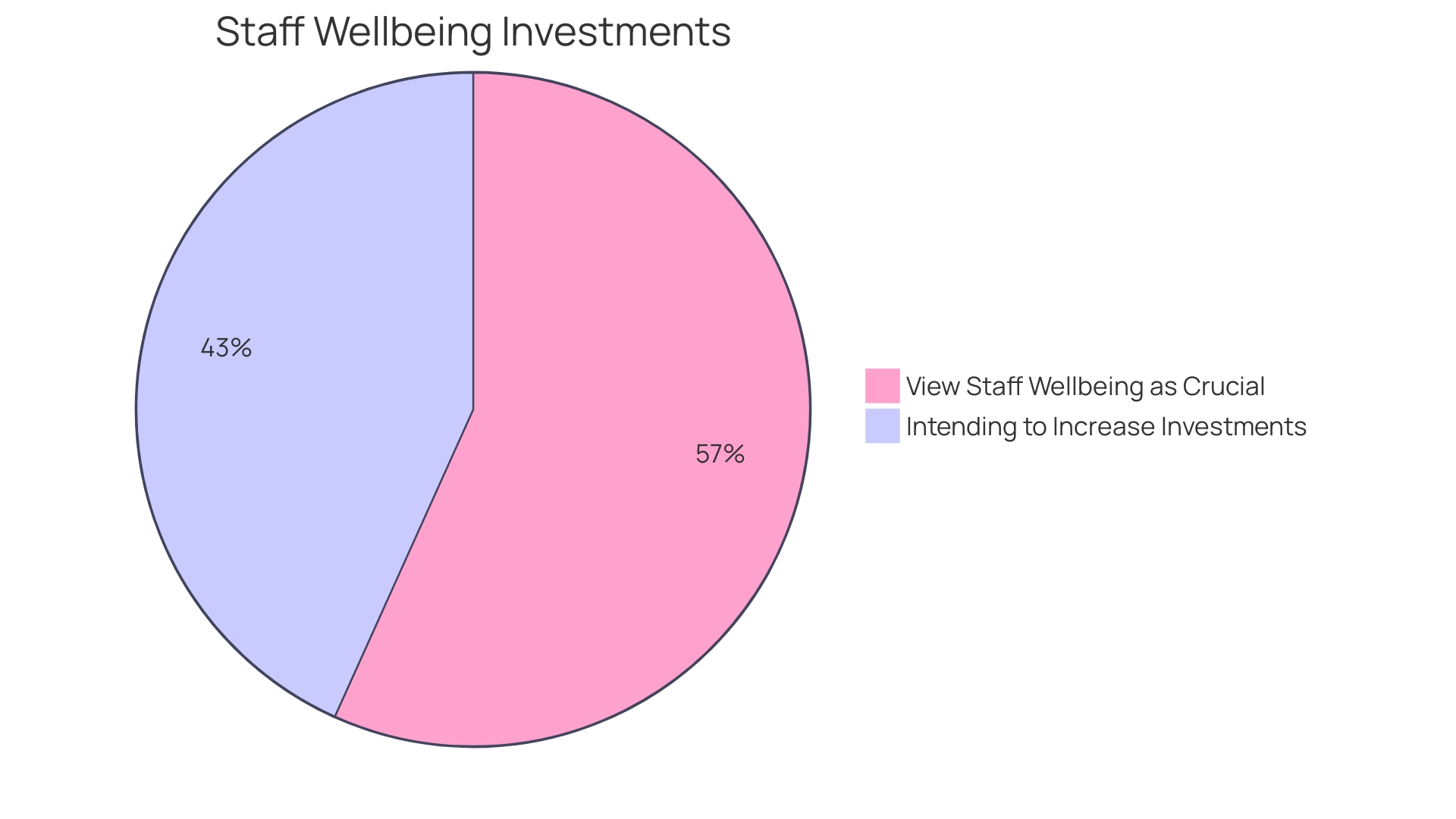Introduction
In today's fast-paced corporate world, resilience is not just a buzzword; it's a fundamental attribute for thriving teams and robust business performance. Understanding the importance of resilience in corporate wellness can empower HR Benefits Managers to foster environments where employees not only cope with stress but also excel amid challenges. Investing in comprehensive wellness strategies is more than a compassionate gesture; it's a strategic business move.
Studies highlight significant returns on investment in employee wellness, proving that prioritizing mental, emotional, and social well-being translates into tangible productivity gains and cost reductions. By cultivating a culture of support, open communication, and flexible work practices, organizations can transform adversity into a catalyst for innovation and growth. This article delves into the benefits of building resilience within teams, offers actionable strategies to enhance employee well-being, and outlines effective corporate wellness initiatives that can lead to a flourishing and cohesive workplace.
Understanding the Importance of Resilience in Corporate Wellness
Resilience in the workplace is the cornerstone of a thriving and productive team. It enables individuals and groups to recover swiftly from setbacks, adapt to changing circumstances, and maintain high levels of efficiency even under stress. Investing in corporate wellness strategies is critical for nurturing this resilience. 'According to a Deloitte report, 80% of organizations now view staff wellbeing as fundamental to their business strategy, and 61% plan to increase their investment in wellness programs.'. This is not only a humane approach but also a strategic one, with the World Health Organization (WHO) indicating a return on investment of 4 to 6 dollars for every dollar spent on wellness programs, primarily through enhanced productivity and reduced costs.
Promoting resilience through a culture of wellbeing means creating an environment where employees feel valued and supported. This includes more than merely tackling physical wellness; it covers psychological, emotional, and social wellbeing. Open communication and the dismantling of the stigma surrounding psychological well-being are essential. Research emphasizes that around 35% of individuals perceive those with psychological challenges as threatening, and approximately 28% consider them as unsuitable for collaboration. Consequently, a culture that promotes open conversation about emotional well-being and offers support for managing and sustaining balanced lifestyles is essential.
Furthermore, organizations need to acknowledge the influence of technology on psychological well-being. The constant connectivity and hyper-responsiveness required by today's work environment exacerbate anxiety and stress. Effective wellness strategies must acknowledge this and offer ways to mitigate the negative impacts of technology on workers' mental health.
By fostering resilience through comprehensive wellness programs, organizations can ensure their teams are not merely surviving but truly flourishing in a competitive business landscape. This holistic approach to wellbeing not only boosts morale and job satisfaction but also drives innovation and better business outcomes.

Benefits of Building Resilience in Teams
Building resilience within teams leads to numerous benefits, including improved job performance, enhanced creativity, and increased employee engagement. Resilient teams are better equipped to handle setbacks and are more likely to collaborate effectively. This cohesion not only enhances morale but also contributes to a positive organizational environment, ultimately driving business success. As MIT Sloan professor emeritus Edgar Schein emphasizes, resilient organizations can adapt and improve when confronted with challenges, ensuring they continue to grow and evolve. In the face of adversity, a resilient team doesn't just bounce back; it leaps forward, transforming obstacles into opportunities for innovation and progress. This ability to 'jump ahead' is vital in maintaining an optimistic outlook and fostering a culture of continuous learning and well-being.
Strategies to Enhance Employee Well-being and Resilience
Improving workforce well-being requires a comprehensive and strategic approach. Organizations can begin by thoroughly understanding staff needs and concerns through surveys and open communication channels. Encouraging an adaptable leadership approach and cultivating a culture of belonging are crucial to guarantee that each individual feels appreciated. Implementing work-life balance initiatives such as reduced-hour work weeks or flexible schedules can significantly reduce stress and burnout, thereby enhancing productivity.
Acknowledging staff accomplishments is also crucial in sustaining morale and motivation. According to a Deloitte report, 80% of organizations view staff well-being as a crucial part of their business strategy, with 61% planning to increase investments in related programs. This focus is not just humane but also financially beneficial; the World Health Organization reveals that for every dollar spent on well-being programs, companies can expect a return of 4 to 6 dollars through improved productivity and reduced costs.
Furthermore, encouraging awareness of psychological well-being and removing the stigma associated with seeking assistance are essential components of a comprehensive well-being culture. As highlighted by the Who's Global Survey, many workers still face stigma regarding mental health, which can be mitigated through open communication and support programs. Case studies have shown that companies investing in staff well-being see a positive impact on their bottom line, with human talent and creativity being significantly more valuable than physical assets.
By integrating these strategies, companies can cultivate an environment where resilience and cohesion thrive, driving both individual and organizational success.
Implementing Corporate Wellness Strategies
Developing comprehensive wellness programs is essential for nurturing resilience and cohesion within teams. According to a Deloitte report, 80% of organizations now view staff wellbeing as a crucial component of their business strategy, with 61% intending to increase their investments in this area. Involving leaders and managers in these initiatives is essential; their participation guarantees that wellness is a mutual priority, promoting an atmosphere where collaboration and group problem-solving are integral to everyday work.
Fostering an environment of ongoing learning and psychological safety enables staff to feel backed and appreciated, setting the stage for recovery and development. This approach is backed by the World Health Organization, which highlights that every dollar invested in wellbeing programs can yield a return of 4 to 6 dollars due to enhanced productivity and reduced costs. Furthermore, a comprehensive emphasis on wellbeing—covering physical, emotional, and social dimensions—contributes to creating a strong and unified team culture.
Open and transparent communication is another cornerstone of a successful wellness program. By fostering open conversation about psychological well-being and diminishing stigma, organizations can motivate staff to seek assistance when necessary. The World Health Organization’s global survey on the stigma of mental health disorders underscores the importance of this, revealing that around 35% of respondents viewed individuals with mental disorders as dangerous, and approximately 28% considered them incompatible with teamwork.
Furthermore, research indicates that a balance between remote and in-person work can significantly enhance work-life balance and personal productivity. This balance is critical for maintaining connection and development opportunities that require observational learning. By fostering a culture where employees feel valued and supported, organizations can drive growth, innovation, and better outcomes.

Conclusion
Nurturing resilience within teams is not merely a beneficial strategy; it is a crucial investment in the future of any organization. By prioritizing employee well-being, companies can cultivate an environment where individuals not only survive challenges but thrive in the face of adversity. The evidence is clear: organizations that embrace comprehensive wellness initiatives see significant returns in productivity and reduced costs, reinforcing the notion that a focus on mental, emotional, and social health is integral to business success.
Building resilient teams leads to enhanced collaboration, creativity, and overall job performance. As challenges arise, resilient teams transform obstacles into opportunities for growth, fostering a culture of continuous learning and innovation. This adaptability is essential in today’s dynamic business landscape, where the ability to pivot and improve is key to long-term sustainability.
Implementing effective corporate wellness strategies involves understanding employee needs, promoting open communication, and fostering a culture of belonging. By recognizing achievements and encouraging flexible work practices, organizations can significantly reduce stress and burnout, ultimately enhancing productivity. A commitment to mental health awareness and the elimination of stigma further strengthens the foundation of a supportive workplace.
In conclusion, investing in resilience through a robust wellness framework is not just an act of compassion; it is a strategic imperative. Organizations that prioritize the well-being of their employees are better equipped to navigate challenges and emerge stronger, driving both individual and collective success. The time to take action is now; the benefits of a resilient workforce are too significant to overlook.




